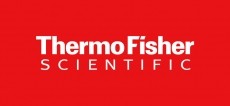Tough times at CyBio
has seen its revenues in the first nine months of the year fall by
a third and expects to post a full-year loss.
Germany's CyBio, which makes laboratory instruments and equipment, has seen its revenues in the first nine months of the year fall by a third and expects to post a full-year loss.
The company operates in a sector that is currently becoming more and more competitive and, as a result, undergoing significant pricing pressures even as customers have hiked their demands in terms of equipment features and performance. Meanwhile, CyBio's high level of exports to the US means that it has been hit hard by the euro's strength against the dollar.
The sales performance is particularly disappointing given that CyBio launched a number of new liquid handling, detection and automation instruments last year - including a new CyBi-Well vario pipettor - and was hoping for a 10 per cent hike in turnover in 2003. In fact, nine-month revenues of €6.6 million this year are only a little higher than the total achieved in the fourth quarter of 2002 (€6.34 million) and, by the same point of 2002, CyBio had sales of €9.9 million.
From a pretax loss of €16.5 million in 2001, the company's strong sales performance against a difficult operating background trimmed the figure to €3 million in 2002. This year, the company is currently running at a pretax loss of €5.1 million and, while the fourth-quarter order book is said to be strong "we are expecting a positive net result in the fourth quarter but it will not be enough to even out the cumulated loss", said the company.
Shares in the company fell more than 6 per cent to €3.10 on the figures and the news that CyBio will request a downgrade to a standard stock listing from Deutsche Boerse AG, the operator of the Frankfurt stock exchange, to reduce costs.
On a more positive note, CyBio said that at the end of the third quarter it had signed a contract development agreement with a large American technology group that will last several years. The agreement will significantly add to the firm's development capabilities and help reduce direct costs, withoutreducing its R&D capacity, according to chief executive Sonja Strauss.










